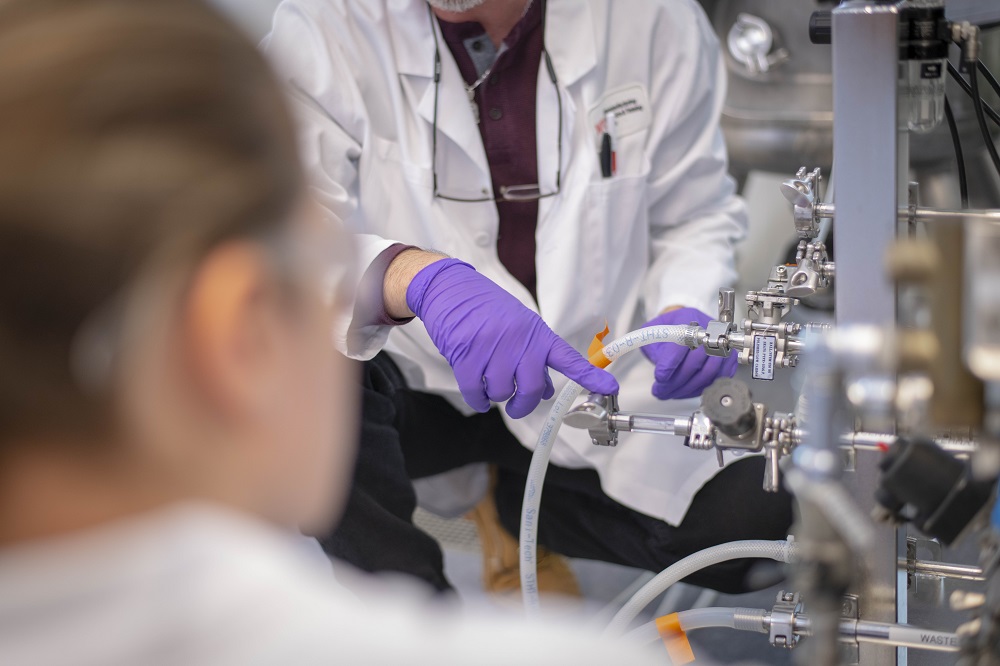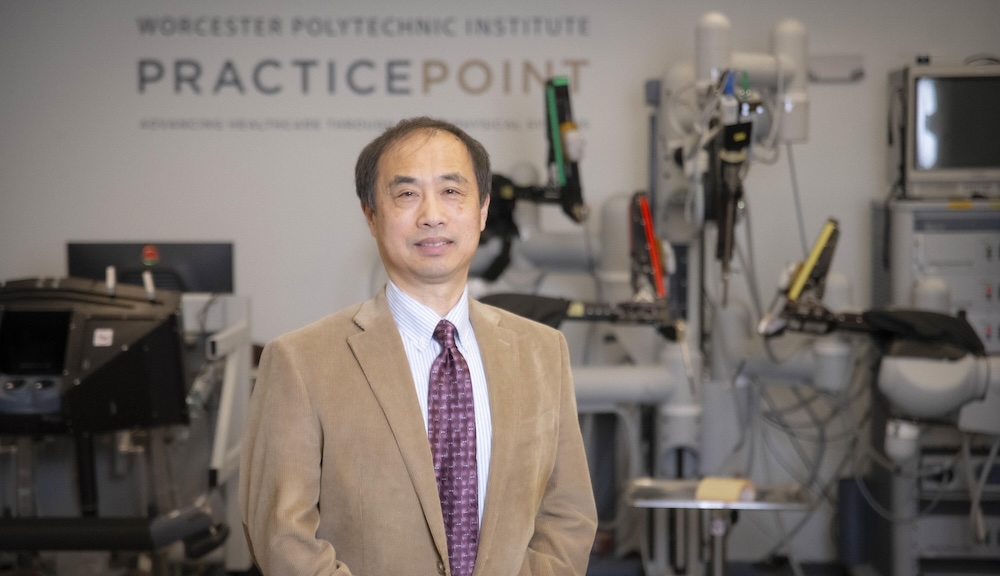Shire plc, the global specialty biopharmaceutical company, has donated a 100-liter bioreactor to help WPI expand the range and scale of its educational and hands-on training programs that support life sciences economic development across Central New England.
The commercial-scale bioreactor and associated equipment, which would cost nearly $200,000 if purchased new, will be integrated into WPI’s Biomanufacturing Education and Training Center (BETC) planned for the next building at Gateway Park in Worcester. "Our growing partnership with Shire is helping WPI educate and train the life sciences workforce companies across the region need to grow and succeed," said Stephen P. Flavin, associate provost and dean of corporate and professional education at WPI. "Once again, Shire has stepped up in a significant way to partner with WPI and we are very appreciative of its generosity."
WPI’s BETC will be a near-commercial-scale biomanufacturing facility with industry-standard process areas of equipment preparation, buffer and media preparation, fermentation and cell culture, capture, purification, and analytics. The center will offer day and evening programs, serving as a comprehensive training facility for students and employees entering the life sciences, for incumbent biotechnology workers who want to advance their skills, and for workers in other industries who seek re-training in biotechnology. "Shire HGT is very happy to support WPI’s workforce development mission," said Bill Ciambrone, senior vice president of technical operations at Shire Human Genetic Therapies (HGT) division. "The continued growth of the biotechnology industry in Massachusetts is very important to the overall economic health of the Commonwealth, and WPI’s programs help assure that the industry will have the qualified workers we rely on to deliver new, innovative therapies to patients."
Traditional pharmaceuticals are made by synthesizing and combining chemicals into specific formulations. Biologics, however, are molecules produced within living cells, which are then isolated and purified to use as therapeutic agents to treat disease. The cells that produce those therapeutic molecules are grown in large quantities in stainless-steel bioreactors under strictly controlled and monitored culture conditions. The 100-liter bioreactor was donated by Shire HGT, the business unit dedicated to discovering, developing, and commercializing therapies for rare genetic diseases. As Shire HGT expanded its facilities in Massachusetts, the company saw an opportunity to donate the reactor to help WPI fit out the new BETC.
In 2009 Shire HGT donated several pieces of commercial-scale equipment for the existing Bioprocessing Center at WPI, which is a model for the expanded programs planned for the BETC. Shire has also signed a formal partnership agreement with WPI to provide experts to help oversee and teach at the BETC, working in collaboration with WPI faculty to bring real-world experience to bear and ensure the new center’s workforce development programs are tightly linked with the needs of industry.
Photo caption: At Shire HGT’s facility in Lexington, Mass., are (from left) Adi Mohanty, Kevin Lynch, and Bill Ciambrone from Shire, and Rachel Yamartino and Stephen Flavin from WPI.


